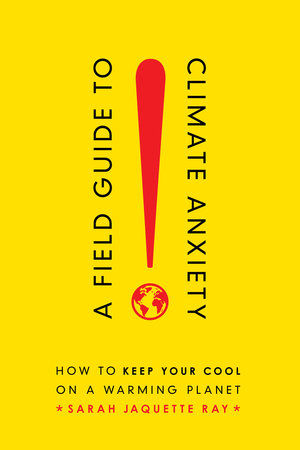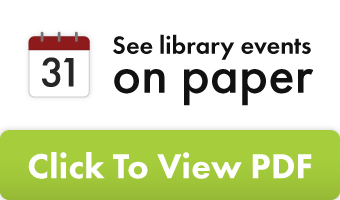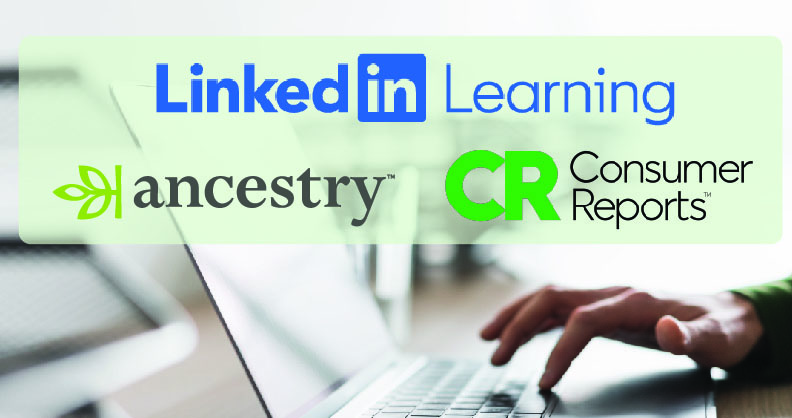Climate Anxiety and Heartland Book Discussions
By Jan Johnson, Adult Programming and Outreach Librarian
 Manhattan Public Library’s programming looks a little different these days as we navigate these past nine months of physical distancing. We aren’t able to gather, we can’t share the spaces we all love in the library and we can’t offer all of the same wonderful in-person programs that bring our community together. We can shift to stay connected and serve you, our community. By now, we’re all (well, most all) accustomed to seeing our co-workers, distant family members and friends through computer webcams. It’s a necessary but impersonal tool to continue our lives as best as we can during this global pandemic. So we shift.
Manhattan Public Library’s programming looks a little different these days as we navigate these past nine months of physical distancing. We aren’t able to gather, we can’t share the spaces we all love in the library and we can’t offer all of the same wonderful in-person programs that bring our community together. We can shift to stay connected and serve you, our community. By now, we’re all (well, most all) accustomed to seeing our co-workers, distant family members and friends through computer webcams. It’s a necessary but impersonal tool to continue our lives as best as we can during this global pandemic. So we shift.
Here, at Manhattan’s public library, we shift our programming to online opportunities, rather than meeting in the auditorium or Groesbeck room. We’ve had storytimes, craft classes, technology training and book discussions online via Zoom or YouTube. It’s not the same, but it keeps the library community together. Looking ahead, we can announce two unique and interesting book discussions planned for the next few months.
Our first, is a collaborative book discussion with librarians from Kansas State University’s Hale Library. They received a grant to work on sustainability within the libraries and seed future library projects. A book discussion will be one part of a four-part series that also includes a screening of the documentary “Fire and Flood,” a conversation with Reverend Vernon Walker on social resilience and climate resilience, and a community workshop about Wildcat Creek.
The book chosen for this first discussion is “A Field Guide to Climate Anxiety: How to Keep Your Cool on a Warming Planet” by Sarah Jaquette Ray, a professor of environmental studies at Humboldt State University. University Press of California describes this book as Gen Z’s first existential toolkit for combating eco-guilt and burnout while advocating for climate justice. The author looks at the emotional effects that climate change has on those of us trying to combat the ongoing climate crisis. She offers knowledge from psychology, sociology, social movements, mindfulness and the environmental humanities of why and how we need to let go of eco-guilt, resist burnout, and cultivate resilience while advocating for climate justice. Ray’s strategies offer deep and practical ways to cultivate collective resilience and creative adaptation, and even thrive in a climate-changed world.
We will offer a series of book discussions on this topic. Several copies are available for check out at Manhattan Public Library and KSU Hale Library. For more information on the rest of the series, watch for updates at lib.k-state.edu/events.
For our second book discussion, the Humanities Kansas TALK series once again provides several copies of the book and a phenomenal speaker to guide us through a thoughtful discussion on the chosen title “Heartland: A Memoir of Working Hard and Being Broke in the Richest Country on Earth” by Kansan Sarah Smarsh. This nonfiction book reads like an intimate work of fiction on the author’s turbulent childhood where “the forces of cyclical poverty and the country’s changing economic policies solidified her family’s place among the working poor.” She tells the stories of her life and the lives of her family growing up in Southwest Kansas, and the influence of intergenerational poverty had on them. Heartland combines memoir and with powerful analysis and cultural commentary, with an uncompromising look at class, identity, and the particular perils of having less in a country known for its excess.
Manhattan Public Library has copies of each of these titles for checkout at the second floor reference desk. “Heartland” is available online in ebook and audio from Sunflower eLibrary, found on MPL’s Digital Resources page from the website www.mhklibrary.org. You can use the Libby app to easily download and read or listen to the book. To register for either of these events, go to the events page from our website.

